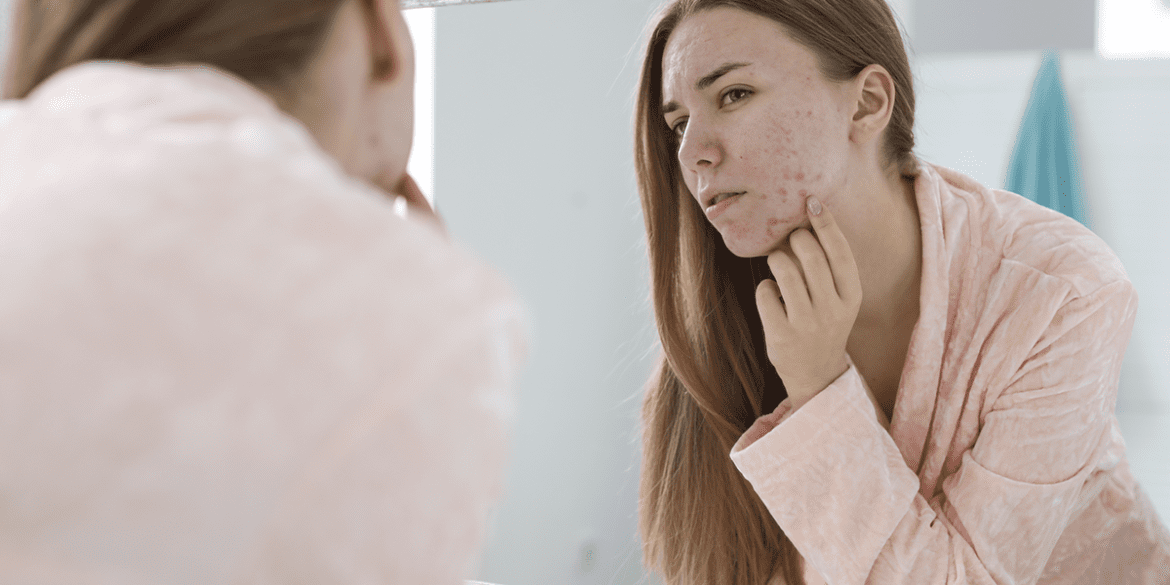Most people connect acne with heat and sweating, environments that leave your skin with a sheen of grease that ends up clogging pores. But winter is actually a time when many experience breakouts they don’t get at other times of year. Let’s understand how and why this happens
Why can acne get worse in the winter?
Even in winter, every acne regimen must be uniquely customized to the affected person. Winter conditions often require alterations to a previously developed acne regimen, as it is common for the skin to become more dry. Sometimes dry skin causes extra sebum (oil) to be produced which can lead to more acne flares. Other times, dry skin can cause inflammation and break down the skin barrier. Because some acne prescriptions also make the skin dry, the accumulation of these factors can result in the need for adjustments to a patient’s acne treatment plan.
How do I manage dry skin and acne at the same time?
When managing dry skin in the winter, try turning down the water temperature. Whether washing your face or in the shower, the extra heat from the water can break down the skin and cause more dryness. After washing, use a hydrating cream to help lock in moisture. Be prolonged outdoor exposure to wind and freezing temperatures can also damage the skin. We often recommend that patients need to “listen to their skin”. If their skin feels dry/tight/irritated, try taking a night (or as many nights) off their retinoids and just use a gentle cleanser and moisturizer.
What about acne on other areas, like the back and chest?
Acne in these areas tend to be more stubborn, but less sensitive. These areas often tolerate topical therapies that tend to be more drying. The same rules apply. If the skin needs a break, take the time necessary to just moisturize.
What can I do at home to prevent acne flare ups in the winter?
Make sure you are sticking to a good skin care routine, including washing your face twice daily with gentle cleansers and lukewarm water. Add in moisturizers more frequently if needed. Try to use water that isn’t scalding, since that will only dry your skin out more. As always with acne, the goal is to prevent scarring. So, depending on the severity of a flare, prescriptions like oral antibiotics or other topical prescriptions may be warranted.
Are there extra services I can do in-office to treat acne?
Yes, winter is a great time to manage and treat hyperpigmentation and scarring from old or resolving acne. Many of these dermatologic treatments require patients to stay out of the sun for a certain timeframe. Which makes winter in Northeast Ohio a great time to have these treatments done. The best thing to do is make sure you understand your skin and have a regimen tailored to meet your needs no matter the time of year. Schedule your appointment and start today!



